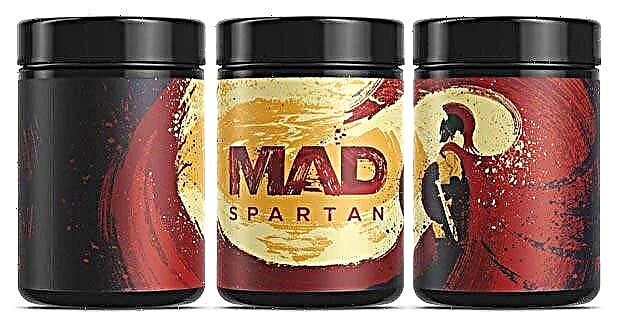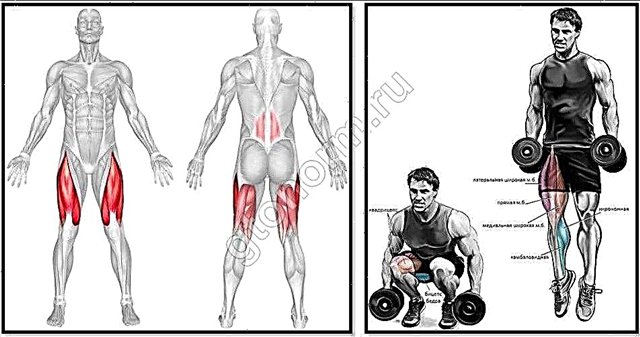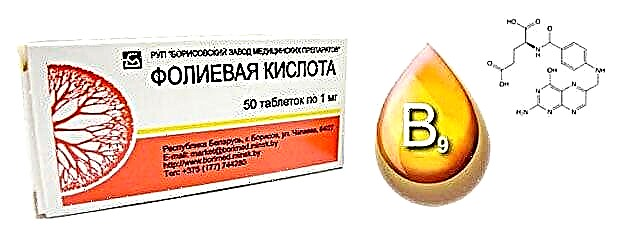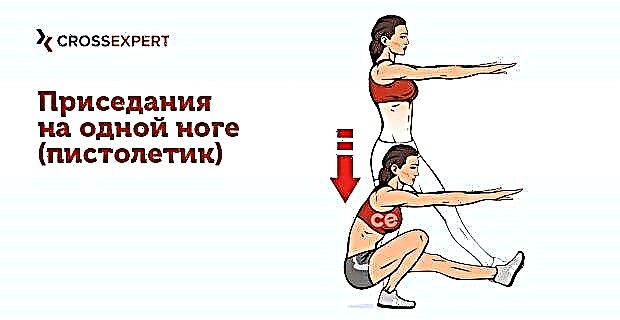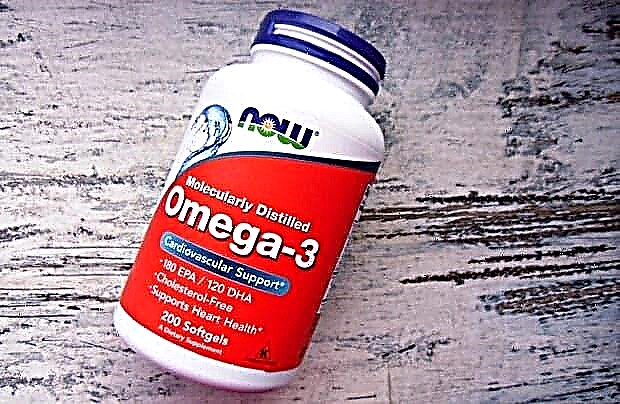Oyster mushrooms are a delicious and nutritious mushroom commonly used in cooking. They can be boiled, fried, pickled, and salted, while they do not lose their nutritional and beneficial properties. Unlike its forest cousins, this product is available at any time of the year.
The benefits of oyster mushrooms for the body lie in their composition, rich in vitamins and minerals. The presence of nutrients helps to strengthen the immune system and prevent various diseases. Eating mushrooms provides the body with biologically active substances and amino acids. The product has no toxic effect. Oyster mushroom is completely edible and safe.
Calorie content and composition of oyster mushroom
Oyster mushroom is a low-calorie product. 100 g of fresh mushrooms contains 33 kcal.
The nutritional value:
- proteins - 3.31 g;
- fats - 0.41 g;
- carbohydrates - 3.79 g;
- water - 89.18 g;
- dietary fiber - 2.3 g
As a result of the subsequent processing of mushrooms, the calorie content in 100 g of the product changes as follows:
| Product | Calorie content and nutritional value |
| Boiled oyster mushrooms | 34.8 kcal; proteins - 3.4 g; fats - 0.42 g; carbohydrates - 6.18 g. |
| Pickled oyster mushrooms | 126 kcal; proteins - 3.9; fats - 10.9 g; carbohydrates - 3.1 g. |
| Stewed oyster mushrooms | 29 kcal; proteins - 1.29 g; fats - 1.1 g; carbohydrates - 3.6 g. |
| Fried oyster mushrooms | 76 kcal; proteins - 2.28 g; fats - 4.43 g; carbohydrates - 6.97 g. |
Vitamin composition
The benefits of oyster mushrooms are due to their chemical composition. Vitamins and microelements have a beneficial effect on the body and have a preventive effect against many diseases.
Oyster mushrooms contain the following vitamins:
| Vitamin | amount | Benefits for the body |
| Vitamin A | 2 μg | Improves vision, regenerates epithelial tissues and mucous membranes, participates in the formation of teeth and bones. |
| Beta carotene | 0.029 mg | It is synthesized into vitamin A, improves eyesight, has antioxidant properties. |
| Vitamin B1, or thiamine | 0.125 mg | Participates in carbohydrate metabolism, normalizes the functioning of the nervous system, improves intestinal peristalsis. |
| Vitamin B2, or riboflavin | 0.349 mg | Improves metabolism, protects mucous membranes, participates in the formation of erythrocytes. |
| Vitamin B4, or choline | 48.7 mg | Regulates metabolic processes in the body. |
| Vitamin B5, or pantothenic acid | 1.294 mg | Oxidizes carbohydrates and fatty acids, improves the condition of the skin. |
| Vitamin B6, or pyridoxine | 0.11 mg | Strengthens the nervous and immune systems, helps fight depression, participates in the synthesis of hemoglobin, and helps to absorb proteins. |
| Vitamin B9, or folic acid | 38 mcg | Promotes cell regeneration, takes part in the synthesis of proteins, supports the healthy formation of the fetus during pregnancy. |
| Vitamin D, or calciferol | 0.7 μg | Promotes the absorption of calcium and phosphorus, improves skin condition, participates in the work of the nervous system, is responsible for muscle contraction. |
| Vitamin D2, or ergocalciferol | 0.7 μg | Provides full-fledged formation of bone tissue, increases the body's resistance to infections, activates muscle activity. |
| Vitamin H, or biotin | 11.04 μg | Participates in carbohydrate and protein metabolism, regulates blood sugar levels, improves the condition of hair, skin and nails. |
| Vitamin PP, or nicotinic acid | 4.956 mg | Regulates lipid metabolism, lowers blood cholesterol levels. |
| Betaine | 12.1 mg | Improves skin condition, protects cell membranes, strengthens blood vessels, normalizes gastric acidity. |
The combination of vitamins in oyster mushrooms has a complex effect on the body, strengthening the immune system and improving the functioning of internal organs. Vitamin D normalizes muscle function and strengthens muscle tissue, which is especially beneficial for athletes.

© majo1122331 - stock.adobe.com
Macro and microelements
The composition of mushrooms includes macro- and microelements necessary to maintain a healthy state of the body and ensure the vital processes of all organs and systems. 100 g of the product contains the following macronutrients:
| Macronutrient | amount | Benefits for the body |
| Potassium (K) | 420 mg | Normalizes the work of the heart, removes toxins and toxins. |
| Calcium (Ca) | 3 mg | Strengthens bone and dental tissue, makes muscles elastic, normalizes the excitability of the nervous system, and participates in blood coagulation. |
| Silicon (Si) | 0.2 mg | Participates in the formation of connective tissue, increases the strength and elasticity of blood vessels, improves the functioning of the nervous system, the condition of the skin, nails and hair. |
| Magnesium (Mg) | 18 mg | Regulates protein and carbohydrate metabolism, lowers cholesterol levels, relieves spasms. |
| Sodium (Na) | 18 mg | Normalizes acid-base and electrolyte balance, regulates the processes of excitability and muscle contraction, strengthens blood vessels. |
| Phosphorus (P) | 120 mg | Participates in the synthesis of hormones, forms bone tissue, regulates metabolism, and normalizes brain activity. |
| Chlorine (Cl) | 17 mg | Regulates water and acid-base balance, normalizes the state of erythrocytes, cleans the liver of lipids, participates in the process of osmoregulation, promotes the excretion of salts. |
Trace elements in 100 g of oyster mushrooms:
| Trace element | amount | Benefits for the body |
| Aluminum (Al) | 180.5 mcg | Stimulates the growth and development of bone and epithelial tissues, affects the activity of enzymes and digestive glands. |
| Boron (B) | 35.1 μg | Takes part in the formation of bone tissue, makes it strong. |
| Vanadium (V) | 1.7 mcg | Regulates lipid and carbohydrate metabolism, lowers cholesterol, stimulates the movement of blood cells. |
| Iron (Fe) | 1.33 mg | Participates in hematopoiesis, is part of hemoglobin, normalizes the work of muscles and the nervous system, fights fatigue and weakness of the body. |
| Cobalt (Co) | 0.02 μg | Participates in DNA synthesis, promotes the breakdown of proteins, fats and carbohydrates, stimulates the growth of erythrocytes, regulates the activity of adrenaline. |
| Manganese (Mn) | 0.113 mg | Participates in oxidation processes, regulates metabolism, lowers cholesterol levels, and prevents fat deposits in the liver. |
| Copper (Cu) | 244 μg | Forms red blood cells, participates in collagen synthesis, improves skin condition, helps to synthesize iron into hemoglobin. |
| Molybdenum (Mo) | 12.2 mcg | Stimulates the activity of enzymes, removes uric acid, participates in the synthesis of vitamins, improves blood quality. |
| Rubidium (Rb) | 7.1 μg | It activates enzymes, has an antihistamine effect, relieves inflammatory processes in cells, and normalizes the functioning of the central nervous system. |
| Selenium (Se) | 2.6 mcg | Strengthens the immune system, slows down the aging process, and prevents the development of cancerous tumors. |
| Strontium (Sr) | 50.4 μg | Strengthens bone tissue. |
| Titanium (Ti) | 4.77 mcg | Restores bone damage, has antioxidant properties, weakens the action of free radicals on blood cells. |
| Fluorine (F) | 23.9 mcg | Strengthens the immune system, bone tissue and tooth enamel, removes radicals and heavy metals, improves hair and nail growth. |
| Chromium (Cr) | 12.7 mcg | Participates in the metabolism of lipids and carbohydrates, lowers cholesterol levels, and stimulates tissue regeneration. |
| Zinc (Zn) | 0.77 mg | Regulates blood sugar levels, maintains a sharp sense of smell and taste, strengthens the immune system, protects against the effects of infections and viruses. |
Digestible carbohydrates (mono- and disaccharides) per 100 g of product - 1.11 g.
Amino acid composition
| Essential and non-essential amino acids | amount |
| Arginine | 0.182 g |
| Valine | 0.197 g |
| Histidine | 0.07 g |
| Isoleucine | 0.112 g |
| Leucine | 0.168 g |
| Lysine | 0.126 g |
| Methionine | 0.042 g |
| Threonine | 0.14 g |
| Tryptophan | 0.042 g |
| Phenylalanine | 0.112 g |
| Alanin | 0.239 g |
| Aspartic acid | 0.295 g |
| Glycine | 0.126 g |
| Glutamic acid | 0.632 g |
| Proline | 0.042 g |
| Serine | 0.126 g |
| Tyrosine | 0.084 g |
| Cysteine | 0.028 g |
Fatty acid:
- saturated (palmitic - 0.062 g);
- monounsaturated (omega-9 - 0.031 g);
- polyunsaturated (omega-6 - 0.123 g).
Useful properties of oyster mushrooms
The product is rich in mineral salts, vitamins, fats, proteins and carbohydrates, which are necessary to maintain the full functioning of the body.
The juice contained in the fruiting bodies of oyster mushrooms has bactericidal properties and prevents the development of E. coli. The fungus has a positive effect on the functioning of the digestive system and gastrointestinal tract. The fiber contained in the composition cleanses the intestines from toxins and toxic substances.
Low fat content prevents cholesterol accumulation and helps prevent atherosclerosis.

© pronina_marina - stock.adobe.com
Oyster mushroom benefits:
- normalizes blood pressure;
- strengthens the immune system and helps fight viruses;
- lowers blood sugar;
- improves metabolism;
- reduces the risk of developing atherosclerosis;
- used to treat helminthiasis;
- improves vision;
- normalizes the work of the cardiovascular system.
In their composition, oyster mushrooms are close to chicken meat, so they are included in the diet of vegetarian and lean food.
Mushrooms perfectly satisfy hunger, they are hearty and nutritious. And the low calorie content allows the use of oyster mushrooms in the diet menu. Vitamin PP promotes the rapid breakdown of fats and their excretion from the body.
People who pay attention to their health should regularly consume these mushrooms, as oyster mushrooms contain more vitamins and minerals than any vegetable crop.
The high content of vitamins has a beneficial effect on the nervous system, improves brain activity and helps relieve fatigue.
The presence of polysaccharides in oyster mushrooms helps prevent cancer. Doctors recommend eating mushrooms during chemotherapy rehabilitation.
Many women use oyster mushrooms in home cosmetology. Masks based on mushroom pulp have a beneficial effect on the skin condition: nourish, moisturize and rejuvenate.
Harm and contraindications
In large quantities, mushrooms can cause stomach or intestinal upset with diarrhea and flatulence.
The negative impact can manifest itself in the form of allergic reactions.
It is not recommended to eat mushrooms for people with diseases of the cardiovascular system, as well as for young children. Pregnant women should consult a doctor before consuming oyster mushrooms.
It is important to remember that mushrooms should not be eaten without heat treatment, this can cause food poisoning.

© Natalya - stock.adobe.com
Conclusion
The benefits of oyster mushrooms cover all body systems and promote health. But do not forget about possible contraindications. Before introducing oyster mushrooms into the diet or using as a therapeutic component, we recommend that you consult your doctor.


